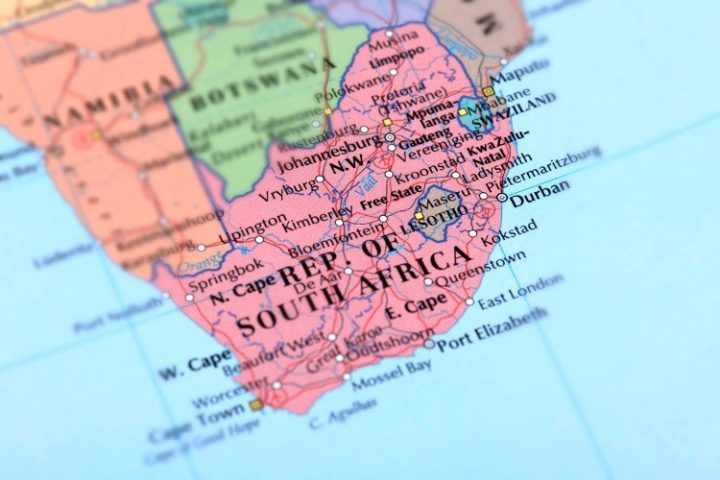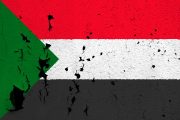
Many in South Africa are questioning whether or not we’re currently witnessing the final stages of a plan to reset government and usher in communist “capitalism” — as was successfully implemented in China. After all, history dictates that a destabilized society will seek security and relinquish rights, freedoms, and sovereignty in exchange for security and stability.
There’s no question South Africa has been through a stage that resembles the “demoralization phase” of a communist takeover, which is generally intended to make a country immoral, so that citizens cannot recognize or believe truth when it’s presented to them. After demoralization and destabilization, the next step in the Communism handbook is a crisis. Without moral underpinning, people are more likely in a crisis to accept false and deceptive arguments and move from a position of independence to that of oppression in an attempt to seek security.
Although South Africans have long been living with the devastating reality that at least 58 people are murdered every day in their country, there are few who could disagree that citizens have been thrust into a deeper level of “survival mode” as a result of the COVID-19 pandemic. The nation is “ripe for the picking” in any Communist playbook — South Africans are terrified, demoralized, and brainwashed into believing that the state is acting in their best interest.
While the government’s recent decision to deploy the South African National Defence Force (SANDF) should be sounding alarm bells in South African minds, fear seems to have cast all rational thinking out the window — fear aided and abetted by the local media. Under section 201 of the South African Constitution, and Sections 18 and 19 of the Defence Act, the military has been deployed to assist the South African Police (SAP) in “crushing the looting and violence” that has gripped the South African provinces of Gauteng and KwaZulu-Natal amid protests over the arrest and imprisonment of former President Jacob Zuma for corruption, racketeering, fraud, and money laundering. The fact that mobs ransacked stores (many of which were bottle stores) speaks of poverty stricken, hopeless people who can see no end to their lockdown misery, rather than the image being portrayed by the mainstream media. While there’s no denying that Zuma’s core supporters believe he’s the victim of a witch-hunt orchestrated by his political opponents, what’s taken place in this writer’s home province of KwaZulu-Natal invokes suspicion that there may be a far greater and more sinister agenda at play here.
The government officials who were in favor of deploying SANDF rather than SAP troops to crime-ridden areas argued that, while soldiers don’t have the right to exercise legal powers as the police do, by increasing the presence of armed security personnel in these areas, brazen gang attacks are less likely to take place. Unlike the police, the military has absolutely no powers of arrest — which means they lack the ability to actually intervene in cases of looting and lockdown restriction violations. However, the military is able to offer assistance in manning road blocks, protecting critical infrastructure, assisting healthcare workers in getting to and from hospitals, and freeing up the police by backfilling various less-crucial functions. On the other hand, the SANDF’s default response to violence is to shoot first and ask questions later. This makes all other government justifications for the deployment appear disingenuous.
On July 12, in a desperate grasp for relevance, Economic Freedom Fighters (EFF) leader Julius Malema took to tweeting some leadership lessons for his former ANC elders. He tweeted that it is wrong to start with the SAP and SANDF as the first means of calming the rioters. He added, “The question should be: Where are the leaders to speak to their people? Are they scared of their people? And if the answer is yes, the next question should be: why are they leaders in the first place?” Earlier in the day, Malema had tweeted, “No soldiers on our streets! Otherwise we are joining. All fighters must be ready… they won’t kill us all. We need a political solution to a political problem, not soldiers.” It should be concerning to South Africans that Malema is appearing to be on the side of “the people” while President Cyril Ramaphosa is perceived to be turning a deaf ear and blind eye to the emotions and agitations of “the people.”
In his typical somber-faced fashion, Ramaphosa delivered a televised address to the nation on the eve of July 12. His speech merely confirmed the notion that he is not the man to coax the mobs into leaving the malls and going back to their mostly obedient, law abiding lives, since people continued looting as he spoke. Political commentator and broadcaster Lukhona Mnguni said, “They tend to listen more to those they feel they can identify with, those they feel they can defer to, because they understand their struggle and are champions of their struggle.” He added that part of what fuelled the protests was a feeling of alienation from the state, and anti-establishment sentiments. He concluded that when triggered, these sentiments could quickly turn against establishments that didn’t supply jobs or pay wages so that the poor cannot afford to buy the goods they are selling.




